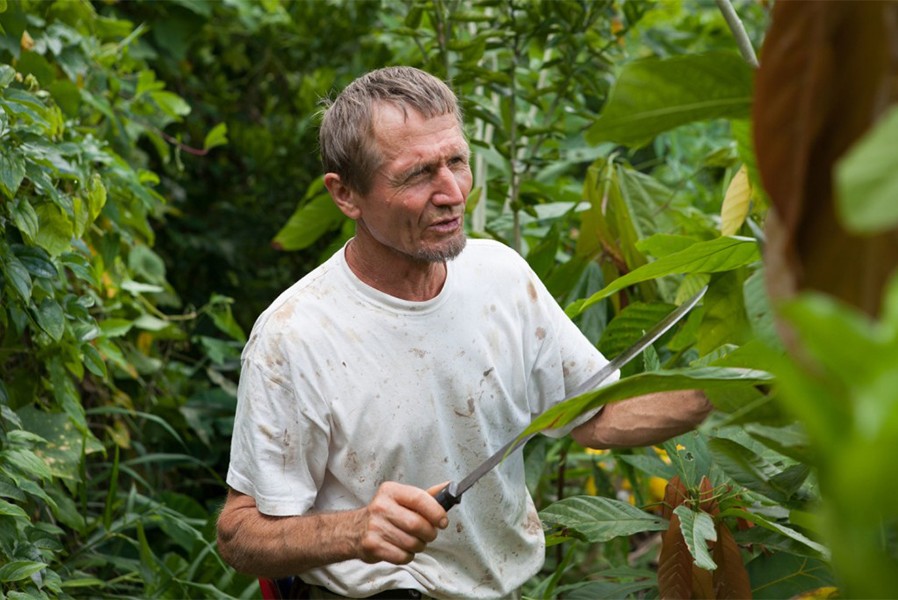Ernst Götsch
"Wouldn’t we achieve greater results if we sought ways of cultivation that favor the development of plants, rather than creating genotypes that support the bad conditions we impose them?"

Here's a time line of Ernst Götsch's life:
- 1948 - Born in Raperswilen, Switzerland
- He worked as a researcher at genetic enhancement at the state-owned FAP Zürich-Reckenholz (today’s Agroscope)
- Aware that the answers he looked for would not come from the laboratory, he resigned
- 1974 - leased areas in Switzerland and Germany to begin his experiments in the field. Influenced by the theories of Ecological Agriculture launched by Hans Peter Rush and Hans Müller, he systematically combined the cultivation of vegetables, roots, and grains, in search for beneficial cooperations that resulted in greater productivity.
- He took an important step by integrating fruit cultivation into his designs, and observed the benefits the trees brought to the system, thanks to their biomass from the woods and the positive interactions with other species.
- He then understood deeply that the dynamics of natural succession should be incorporated into agriculture, favoring, as in a forest, the establishment of ecosystems with increasing levels of organization.
- In that period, one of his conclusions was that the health of the plant did not depend exclusively on the treatment given to it as an individual. Neither was the rotation of crops or consortia. It was necessary to consider the ecosystem as a whole, including intraspecific and interspecific relationships.
- In Namibia and Costa Rica he applied his ideas in different climatic and social contexts, which brought him closer to the tropics.
- 1982 - Ernst moves with his family to a 480 hectares farm in Brazil. In addition to the job opportunity, it would also be a chance to test whether the methods he had developed in Europe and especially in Costa Rica would serve the dual purpose of reversing soil degradation and establishing a productive cacao plantation.
- 1995 - After he reforested the property, introducing cocoa as a key crop, he published the results in “Breakthrough in Agriculture”.
- In the early 1990s, Ernst Götsch bought his partner’s share and became the owner of the area, now renamed to “Fazenda Olhos D’Água” (Water Eyes Farm).
- In the subsequent period, he was hired by public, private and third sector initiatives and also attended invitations to teach courses and lectures.